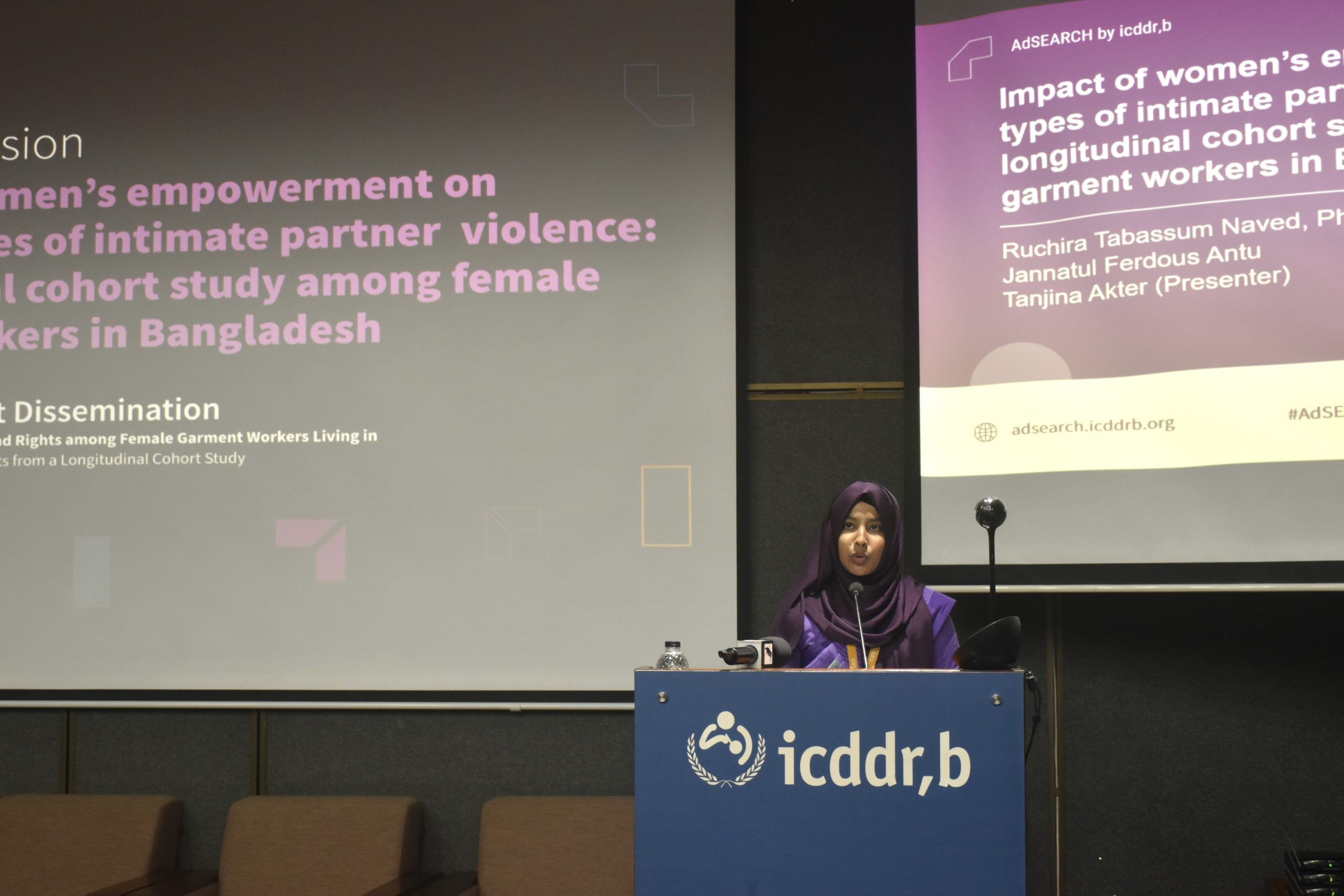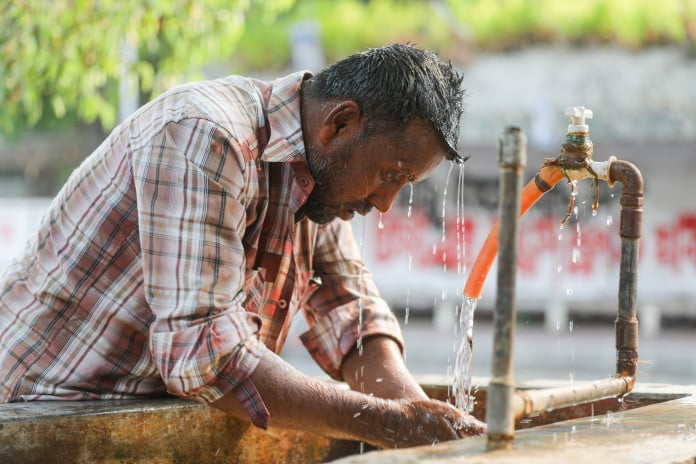Early Marriage and Health Risks: icddr,b Study Exposes Challenges for Women in Bangladesh’s Garment Industry

Women working in Bangladesh’s garment industry face significant reproductive health risks, with early marriage, teenage pregnancy, limited access to contraception, and widespread violence emerging as critical concerns. These findings were revealed in a groundbreaking long-term study conducted by the International Centre for Diarrhoeal Disease Research, Bangladesh (icddr,b), presented at a seminar at its Mohakhali campus in Dhaka today.
The research, the first of its kind in the country’s garment sector, ran from August 2022 to December 2024. It examined the sexual and reproductive health and rights of female garment workers, highlighting the structural barriers and social challenges they face.
Early Marriage and Teenage Pregnancy
The study found that two out of three women in the industry were married before turning 18, and nearly two-thirds experienced their first pregnancy before reaching adulthood. Alarmingly, one in three reported experiencing at least one unwanted pregnancy.
Those with at least nine years of schooling were less likely to become pregnant during adolescence, while women who began using contraception after childbirth had their risks nearly halved. Conversely, the risk of teenage pregnancy rose by about 25% among women exposed to spousal violence.
Contraception and Awareness
Contraceptive knowledge and usage remain limited but are slowly improving. At the start of the study, only one in seven workers knew about contraceptives, but within two years, this rose to one in four. Joint decision-making between couples regarding contraceptive use also improved significantly, from just over half at the beginning to nearly three-quarters after two years.
Despite this progress, access remains a challenge. Only a small number of factories provide free contraceptives, and very few employ trained nurses to deliver health services.
Violence at Home and Work
The study also revealed alarming rates of violence. Nearly half of the women reported psychological abuse at the start of the research period, a figure that increased further over time. Spousal violence was described as widespread, yet the majority of victims did not seek formal assistance.
Initially, one in three women turned to friends or family for informal support, but by the end of the two-year study this dropped to just one in five — suggesting shrinking safety nets.
Policy and Social Implications
Researchers stressed that strengthening women’s decision-making power is key to reducing violence and improving health outcomes. Greater independence and workplace autonomy, they argued, could significantly lower risks of both physical and sexual abuse.
Expert Reactions
“Women in the garment sector fare worse in terms of reproductive health and rights compared to other industries,” said Dr. Rushda Tahmim Nasrin, lead researcher at icddr,b. “A coordinated effort by government, development agencies, and stakeholders is urgently required.”
Tarzana Sharmin, Joint Secretary of the Bangladesh Knitwear Manufacturers and Exporters Association (BKMEA), added: “In a patriarchal structure, women’s voices are rarely heard. Making contraceptives more accessible and raising awareness among workers are essential steps.”
Legal experts echoed the call for reform. Yasmin H. Ahmed, Senior Lawyer at the Supreme Court, emphasized the need for free contraceptives and counseling in factories, while Dr. Wadud Rahman, also a Supreme Court lawyer, noted: “Workers remain restricted by structural barriers. Expanding knowledge is critical to prevent unwanted pregnancies.”
The Road Ahead
icddr,b said the findings will provide vital evidence to guide policy reforms and targeted programs aimed at improving the health, rights, and protection of women working in Bangladesh’s garment industry.



















